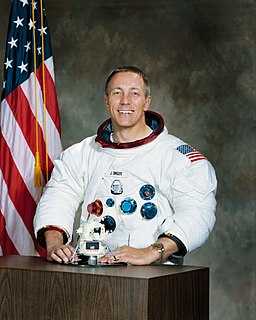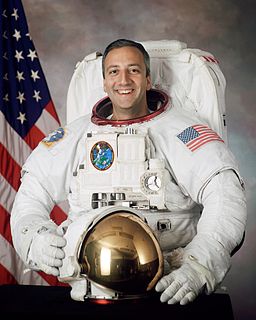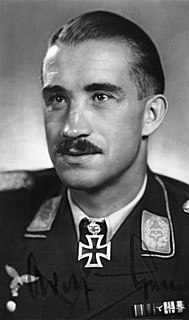A Quote by Jack Swigert
I'm a fighter, not a quitter. Look what I did to get into the space program.
Related Quotes
I had always been interested in the space program, and I didn't know if I could be an astronaut like I'd dreamt about when I was a little kid - to me it sounded kind of silly, someone grow up to be an astronaut - but, when I was in my 20s, I thought maybe I can get a job with NASA or a contractor, do something with the space program.
One thing I see in a lot of coaches is they try to live through the fighter. You can't live through the fighter. You gotta allow the fighter to be the fighter, and do what he do, and you just try to guide him. Why should I have to live through a fighter, when I went from eating out of a trashcan to being eight-time world champion? I stood in the limelight and did what I had to do as a fighter. I've been where that fighter is trying to go.
I couldn't get my first film on the air. The first film I did was called 'The Race For Space,' about the U.S.-Soviet space race. The networks had a policy that I found out about the hard way. I even had a sponsor for my program, but the networks wouldn't put it on because it was independently produced.
If I could get one message to you it would be this: the future of this country and the welfare of the free world depends upon our success in space. There is no room in this country for any but a fully cooperative, urgently motivated all-out effort toward space leadership. No one person, no one company, no one government agency, has a monopoly on the competence, the missions, or the requirements for the space program.
One of the great intellectual mistakes Einstein made is that he thought that space and time are physically or ontologically entangled. In the present non-spatial universal computational program, space and time happen to be entangled to the extent that, under certain unique circumstances, changes in spatial measurements indicate changes in temporal ones. However, a change in the program itself may cause space and time to disentangle.
































